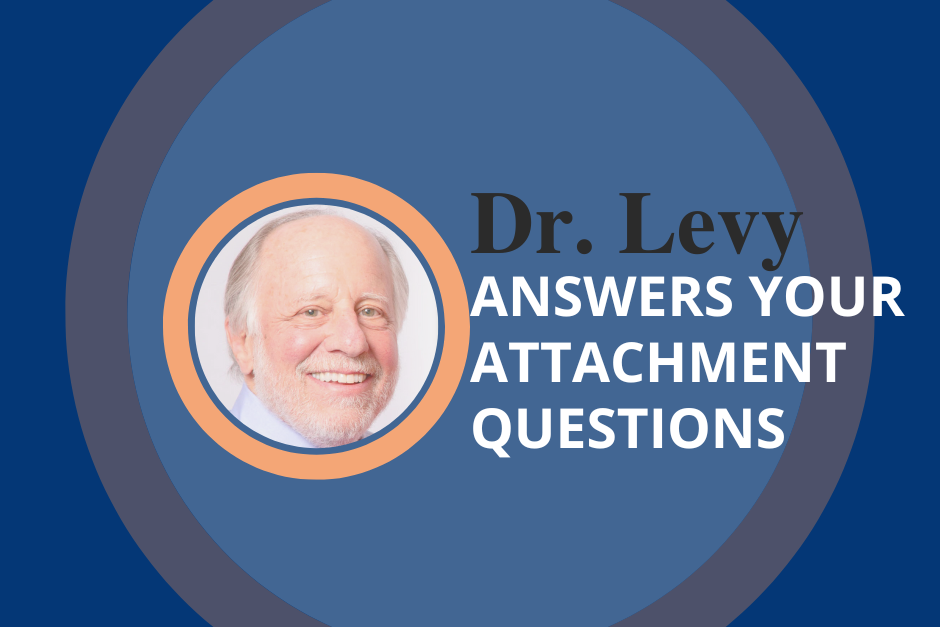Each month, Dr. Levy answers a common question he has received from professionals, caregivers and parents during decades of pioneering work on attachment theory, treatment and training.
Not all adopted children have attachment problems. Typically, children who are adopted early into safe and loving homes, will develop secure attachments to their adopted parents and live healthy and productive lives.
However, many adopted children bring to their new families a history of adverse early experiences (e.g., abuse, neglect, moves, lack of secure attachment) that make them more vulnerable to psychological, social and developmental risks. The key factors in regard to the severity of attachment disorders are the child’s age at adoption, the number of prior moves and disruptions, abuse and neglect in the first two years of life, and the quality of prenatal health. These factors seriously affect children’s ability to trust and form close relationships throughout their lives.
Unfortunately, a high number of adoptive children have serious attachment issues that influence how they cope in daily life and cause them to come to the attention of mental health, social service, and criminal justice systems. Research on the adjustment of adopted children, indicates they are at greater risk of developing emotional, social, behavioral, and/or academic problems than nonadopted children. Adopted children, who comprise about 2.5 percent of children under 18 in the United States, represent approximately one-third of children who are placed in residential treatment and adolescent psychiatric centers.
Adopted children are referred for psychological treatment two to five times more frequently than their nonadopted peers, and are twice as likely to display psychosocial problems in childhood or later life. They have a higher incidence of running away and have more difficulties in school, both academically and socially, than nonadopted children. Adopted children are involved in disproportionate numbers in the criminal justice system as they grow older.
Many adopted children struggle with unresolved feelings of abandonment, loss, and grief, which results in emotional and behavioral problems. There are two opposite responses to being abandoned as a child. One way children deal with their abandonment fears is to provoke rejection by others (“I’ll reject you before you reject me”). They “deactivate their attachment needs,” pretend they are self-reliant, and avoid closeness. The other coping strategy is to be acquiescent, compliant, and withdrawn (“If I please you and stay out of your way, maybe you won’t leave me”). Regardless of which approach is used, most children who have been abandoned have issues in one or more of the following areas: separation and loss, trust, rejection, guilt, shame, intimacy, identity, loyalty, power and control.
We work with many children who have lived in orphanages or a number of foster homes prior to adoption. Despite early abandonment and maltreatment, they still maintain a psychological connection to their birth families. Even some children with strong and enduring attachments with adoptive parents have this lifeline to biological parents and cultures.
The best adoptive parents cannot replace what some children yearn for and question (“Why did they leave me; was I not good enough to keep”?) For some children, this longing is always there, either on the surface or unconsciously. Until they are able to come to terms with unresolved feelings toward their birth family, children may continue to experience grief and depression over their loss, anger toward others who are trying to love them, and a sense of inadequacy and shame.
Previous articles addressed questions about the Seven Functions of Secure Attachment, the Dependency Paradox, the importance of talking about trauma, the First Year Attachment Cycle, Attachment Communication Training, the Core Concepts of Childhood Development, the traits of successful and healthy adult relationships, stress and attachment, and long-term effects of compromised attachment.



Hello,
This is a very informative article. My question is… how does a child cope when the child was raised by loving grandparents for 6 years or so and then is forced to live with a parent who neglects the child psychologically without ever forming a bond. That child is somewhat as an adopted child, I imagine… with life long emotional trauma of abandonment twice!
Unfortunate that the child was “forced” to live with a neglectful parent and lose the security of the grandparents. This will most likely cause emotional trauma and disrupted attachment. I hope this child gets help.
This happened to me. My addict mother wouldn’t let me stay with my Mammaw. She kept taking me back because she hated how happy I was. I realize that sounds insane, but it’s the truth, and she admitted it later in life. She took me back and sent me to foster care so Mammaw could never take me back. I’m grown up now. Cold, strange, abrasive, disliked, haunted. If you can rescue that baby, do it. Because this is a life ruining circumstance. And make sure the baby knows that it is not her/his fault, that something was wrong with mum, and she loved them (even if it isn’t true), but didn’t know how to raise a child. and get a therapist with experience with RAD.